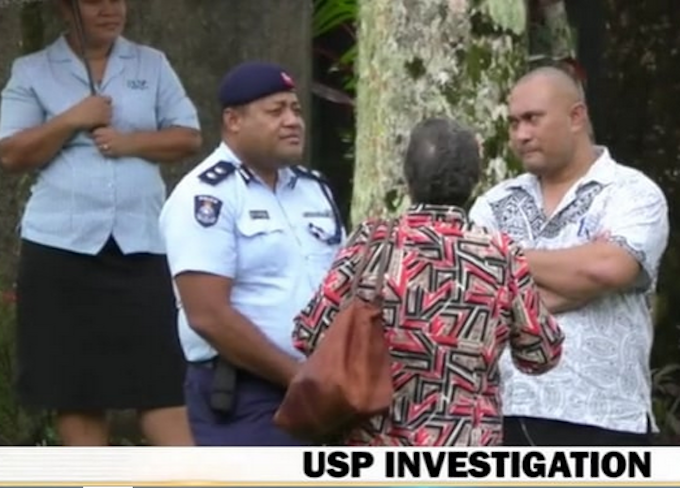
The Fiji authorities must respect the rights to freedom of expression and peaceful assembly for university staff and students and immediately cease intimidation tactics, say international human rights groups Amnesty International and Civicus.
About 200 university staff and students held peaceful protests from 8 June 2020 to show support for the vice-chancellor Professor Pal Ahluwalia who was suspended later that day.
The vice-chancellor was suspended because of his role in exposing mismanagement of funds and cronyism at the university and he was reinstated yesterday by the USP Council.
READ MORE: Special reports on the USP leadership crisis
On 9 June, police entered the USP campus to shut down the protest, stating that any continuation of the protest would require a permit.
Following the peaceful protests, the police obtained photos of protesters from journalists.
The police also confiscated some of the photos from the office of The Fiji Times newspaper on 12 June, using a search warrant.
On 16 June 2020, the police questioned staff from the university, focusing on possible breaches of covid-19 rules by participating in the peaceful protests.
Gatherings prohibited
Since March 2020, the Fiji government has prohibited all gatherings of more than 20 people as part of its covid-19 response.
On 5 June 2020, Prime Minister Voreqe Bainimarama announced that all 18 people who had confirmed cases of covid-19 nationally had recovered, and that there had not been a new positive test result in more than 45 days.
Under international human rights law, the right to peaceful assembly may be limited in a public health emergency, but such restrictions must be reasonable, necessary and proportionate to a legitimate aim.
“Given Fiji’s effective response in containing cases of covid-19 in the country, continuing restrictions on gatherings need to be specifically justified and may amount to a violation of human rights,” said Amnesty International and Civicus in a statement.
“Preventing people from protesting collectively in public as a result of covid-19 measures must be a last resort based on compelling needs, and due weight must be given to the importance of the right to peaceful assembly and the need of people to jointly raise their voices.
“There have been a number of instances over the last few years where peaceful protests have been arbitrarily restricted in Fiji, under the Public Order (Amendment) Act 2014, particularly protests organised by trade unions.
“Authorisation under national laws to hold protests have been denied without any valid reasons and often at the last minute.”
The governments of Australia, Nauru, New Zealand and Samoa have issued statements expressing varying degrees of concern about the leadership issues at the University.
Established in 1968, USP is jointly owned by governments of 12 member countries – Cook Islands, Fiji, Kiribati, Marshall Islands, Nauru, Nuie, Samoa, Solomon Islands, Tokelau, Tonga, Tuvalu and Vanuatu. Other international partners, including Australia, New Zealand, the European Union and Japan are key donors to the university.













































